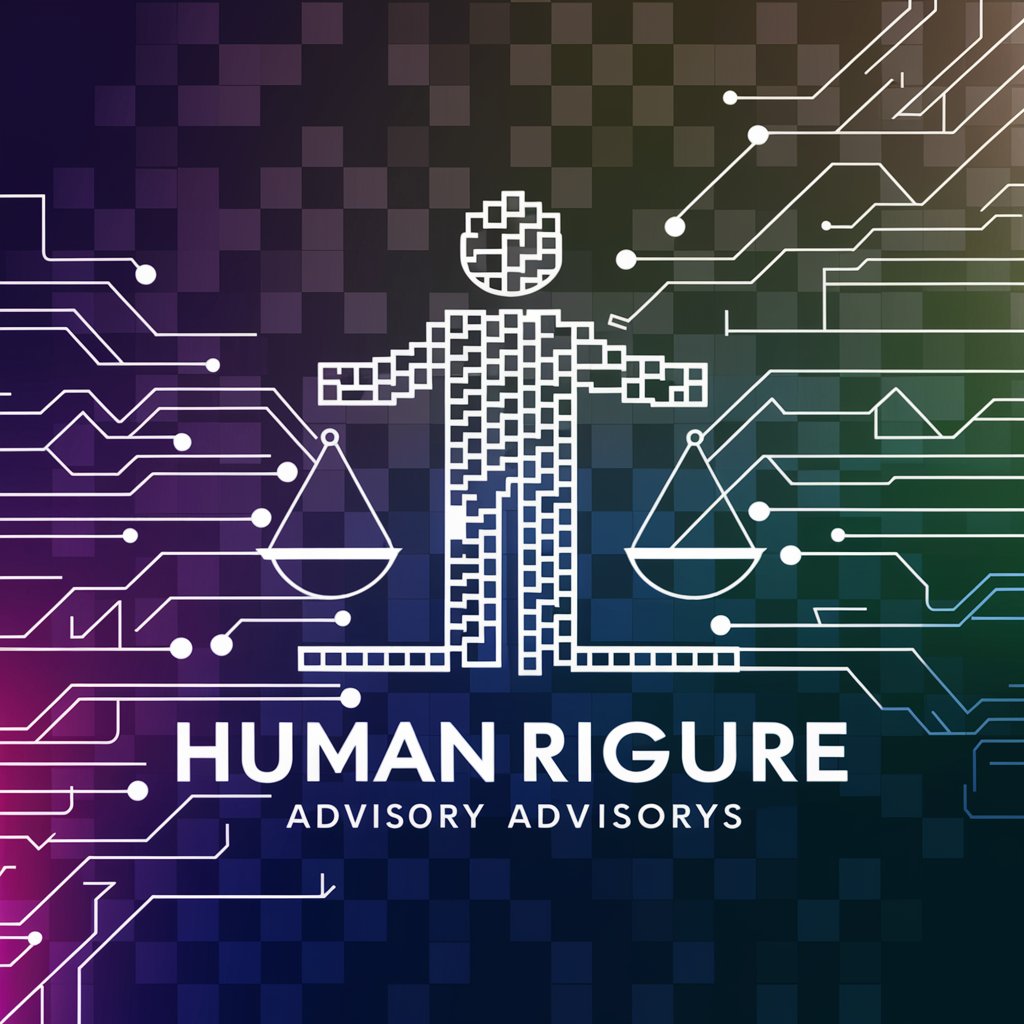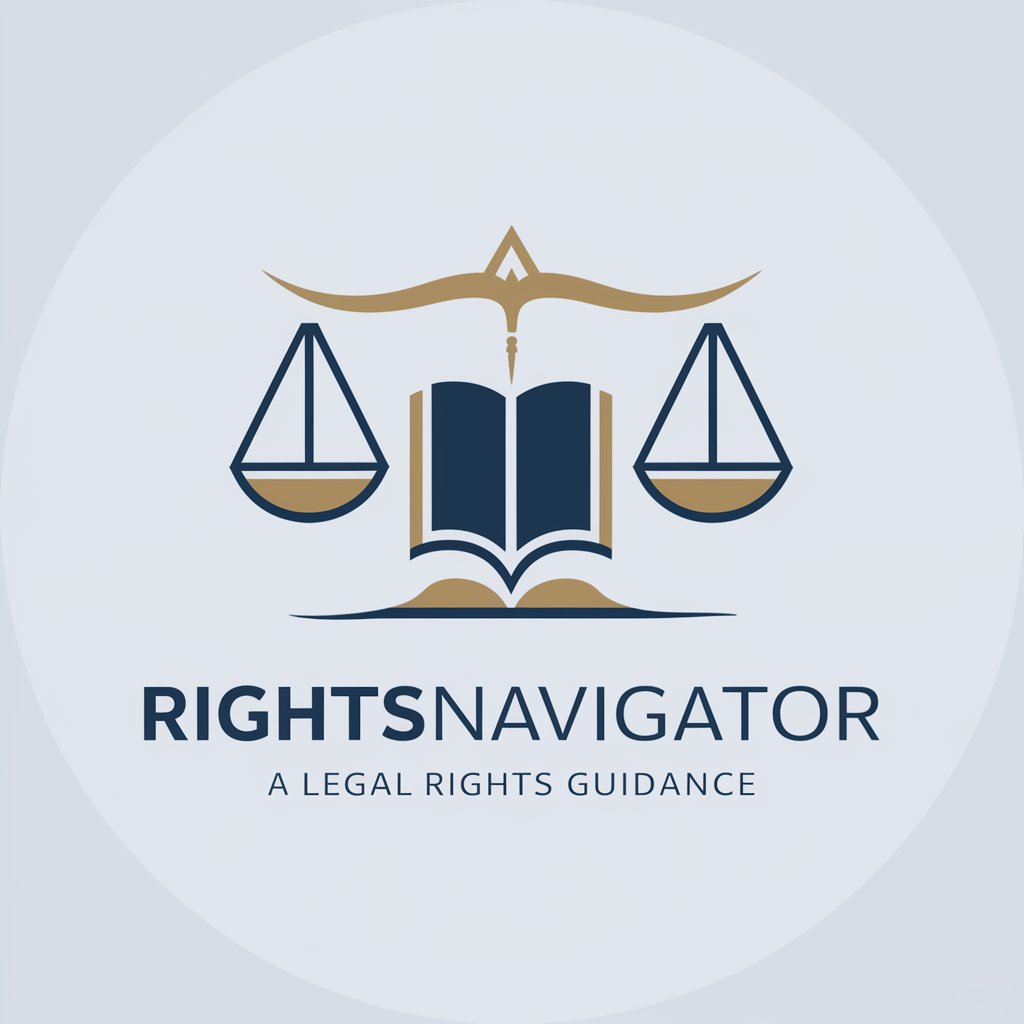
Rights Now - Legal Information AI

Welcome to Rights Now, your guide to understanding legal rights.
Empower Your Rights with AI
What are my legal rights when...
Can you provide information on...
How does the law protect me in cases of...
Where can I find resources for...
Get Embed Code
Overview of Rights Now
Rights Now is designed as a specialized GPT (Generative Pre-trained Transformer) to provide users with general legal information tailored to their geographical location. The primary aim is to make legal knowledge accessible to non-specialists, offering clarity on legal rights and obligations without substituting for professional legal advice. This GPT serves as a bridge between laypersons and the complexities of law by demystifying legal jargon and presenting information in a user-friendly manner. For example, if someone in California is curious about tenant rights under new state housing laws, Rights Now can provide an overview of those rights, relevant legal citations, and guidance on further steps to take, such as contacting local tenant unions or legal aid services. Powered by ChatGPT-4o。

Core Functions of Rights Now
Legal Information Dissemination
Example
A user queries about the process and legal implications of filing for divorce in New Jersey. Rights Now provides a detailed outline of the steps involved, key considerations like custody and property division, and points to state-specific resources.
Scenario
A person considering divorce can gain a preliminary understanding of the process, helping them prepare better for consultations with a lawyer.
Guidance on Legal Procedures
Example
Explains the requirements and deadlines for filing a small claims case in Texas, including how to prepare evidence and what to expect during the hearing.
Scenario
A small business owner seeks to recover debts from a client. Rights Now equips them with knowledge about the small claims process, enhancing their readiness and confidence to proceed legally.
Resource Direction
Example
When asked about dealing with workplace discrimination in Illinois, Rights Now can guide the user to contact the Illinois Department of Human Rights and provide information on how to file a complaint.
Scenario
An employee facing discrimination gains access to specific procedural advice and direct links to the appropriate governmental bodies.
Target Users of Rights Now
General Public
Individuals seeking basic legal information for personal use, such as understanding rights in various situations, preparing for legal procedures, or when seeking initial guidance before obtaining professional legal advice.
Students and Educators
Law students or those studying related fields can use Rights Now to clarify concepts and gain practical insights into real-world applications of legal theories. Educators may use it as a teaching aid to explain complex legal principles in a straightforward manner.
Small Business Owners
This group benefits from understanding the legal framework surrounding areas such as business formation, compliance, contract rights, and dispute resolution, helping them to make informed decisions and manage risk effectively.

How to Use Rights Now
Initial Access
Begin by accessing yeschat.ai where you can start using Rights Now for free without needing to log in or subscribe to ChatGPT Plus.
Identify Your Needs
Determine which legal rights information you require, such as copyright laws, tenant rights, or employment regulations, to make the most relevant inquiries.
Utilize Features
Engage with the tool by typing your questions into the chat interface. Use specific questions to get the most accurate and detailed information related to your legal queries.
Review Responses
Carefully read the responses for useful insights and guidance. Each response aims to clarify your legal rights and the applicable laws in a user-friendly manner.
Seek Further Assistance
For complex issues or legal disputes, consider consulting with a qualified attorney. Rights Now can guide you to appropriate resources or legal referrals.
Try other advanced and practical GPTs
🥋 Rights! 🥋
Empowerment Through AI-Powered Learning

Digital Rights Guide
Empower Your Digital Freedom

Rights Radar
Empower Your Decisions with AI-Powered Legal Insights

Akame Language Mentor
Learn languages with AI power

CADScript Architect
Automate CAD, Power Your Design

Cadsoma Workflow Assistant
Optimizing workflows with AI-powered tools

Digital Rights Geek
Empowering digital freedom with AI

Air Rights NYC
Maximize Your Property Potential

AI Marketing Mentor
Elevate Your Marketing with AI Power

C++ Programming Expert
Empowering Your C++ Journey with AI

Sustainable Business Practices Consultant
Powering sustainability with AI insight.

Community Algo Mentor
Unleashing AI to Detect Community Structures

Frequently Asked Questions About Rights Now
What legal topics can Rights Now cover?
Rights Now provides information on a wide range of legal topics including intellectual property, civil rights, employment law, tenant rights, and consumer protection laws among others.
Is Rights Now a substitute for legal advice?
No, Rights Now is designed to offer general legal information and is not a substitute for professional legal advice. For personalized legal guidance, consult with a qualified attorney.
How accurate is the information provided by Rights Now?
Rights Now strives to deliver accurate and up-to-date legal information by utilizing comprehensive databases and legal frameworks. However, users are advised to verify this information when making legal decisions.
Can Rights Now provide legal documents?
While Rights Now can guide you on what documents you might need for specific legal issues, it does not create legal documents. It may direct you to resources where legal forms can be obtained.
How can I make the best use of Rights Now?
To effectively use Rights Now, be precise with your questions, use the tool to familiarize yourself with legal concepts, and follow up with legal professionals as necessary to act on the information provided.





